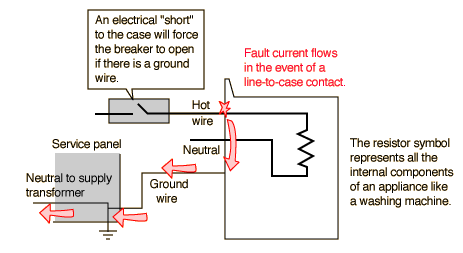This article focus on explaining the similarities and dissimilarities between neutral and earth (ground). Understanding the difference between neutral and earth may be difficult in the beginning. A Lot of safety and protection-related aspects need to be carefully studied for a better understanding of the difference between them.
Note: For this article, let us consider that the terms earth and ground are synonymous and refers to the same common reference point. Also, refer IEV ref 161-04-36, NEC and IEEE (Standard Std 142-2007) for more clarity.
Neutral
Neutral acts as a return conductor for current flow in a single-phase, two-wire (L-N) AC circuit. It completes an AC circuit. It is the center tap point of a Wye-connected transformer. Hence it carries the return current back to the transformer (source). Normally this point is earthed for various reasons. In an ideal AC system, neutral and earth should be at the same potential, which means the voltage measured between the neutral and the earth should be zero.
Earth or Ground
An Earth or ground is a safety connection to protect personnel from electric shock. When a bare conductor inside a piece of equipment touches its metal body or in case of insulation failures, there is a risk of electric shock to the person who operates or touches the equipment. Earth conductors provide a low resistance path for the leakage currents to discharge, hence protecting the equipment and the personnel.

Normally conductor used for grounding a piece of equipment is sized just to carry fault current discharged on the equipment body. Well-grounded equipment avoids the risk of electric shock the person using it.
Normally the neutral point is earthed at the distribution transformer (Delta – Wye connected transformers). This helps in keeping the earth and neutral in the
Read: Why is one of the pins in a three-pin plug longer and thicker than the other pins?
Summary: Difference between Neutral and ground
Neutral is the return path for current flow in a single phase, two wire system (L-N).
Ground is a safety connection for safely discharging the leakage current.

